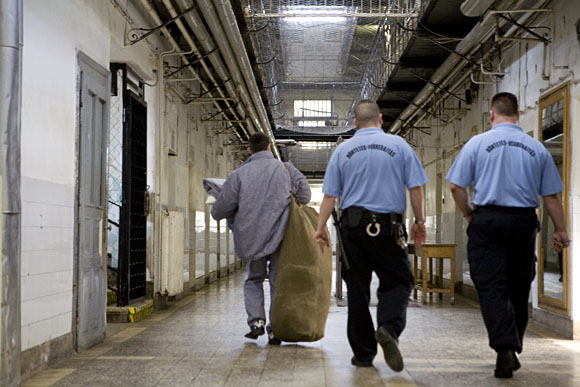Introducing a credit system in Hungarian penitentiary institutions
A ministerial decree has been published, outlining the comprehensive rules for the implementing of a credit system in Hungarian penitentiary institutions starting from March 1st 2024. The core concept of the credit system revolves around the accumulation of credit scores by prisoners throughout their sentences. These scores, earned through positive behavior and various achievements, will determine the placement of the individual in a more favorable category.
The primary goal of the credit system is to motivate prisoners to excel individually.

Under the credit system, prisoners serving a custodial sentence are placed in one of five categories based mainly on their conviction. The credit system only applies to custodial sentences, leaving pre-trial detainees and those deprived of their liberty on other grounds (e.g. petty offence detention) outside the credit system’s scope. From gym access to communication with the outside world, everything varies based on the detainee’s category.
Category I is the least severe, while Category V is the most severe. Each category is associated with different entitlements. For example, a Category I prisoner may use the gym free of charge four times a week, a Category III prisoner may only use the gym for a fee, and a Category III prisoner has no right to use the gym at all. The categories also cover contact with the outside world. The time
allowed per week for phone calls, the number of Skype calls allowed, and the time and frequency of visitors’ reception vary from category to category. The possibility and maximum time allowed to leave the penitentiary temporarily also differs for each category, as does the amount of money a prisoner can spend on his own needs from his earnings. In addition, several other possibilities to facilitate the prisoner’s daily life are opened up or taken away depending on the category in which the detainee is placed.
Being cooperative and participating in reintegration programs can earn prisoners credits, while insubordination can result in deductions. These credits are the key to moving up to a more favorable category, with individualized targets based on a complex algorithm. Each detainee has an individual amount of credits to earn during their sentence, and the number of credits they need to earn to move up a category is also individualized, as these are calculated based on a complex algorithm laid down in the decree, based on the time remaining on the sentence. Six credits can be earned every six months, and additional credits can be awarded to a convicted person based on outstanding performance. Every six months, a committee decides how many credits the detainee will receive out of the maximum. The committee must consider circumstances such as the prisoner’s willingness to cooperate and their participation and performance in employment, education or reintegration programmes.
The Hungarian Helsinki Committee’s information materials on the detailed rules are availabe in Hungarian here.
The introduction of the credit system is a far-reaching reform, promising a significant change in prisoners’ daily lives. Regular monitoring and evaluation will gauge its effectiveness.